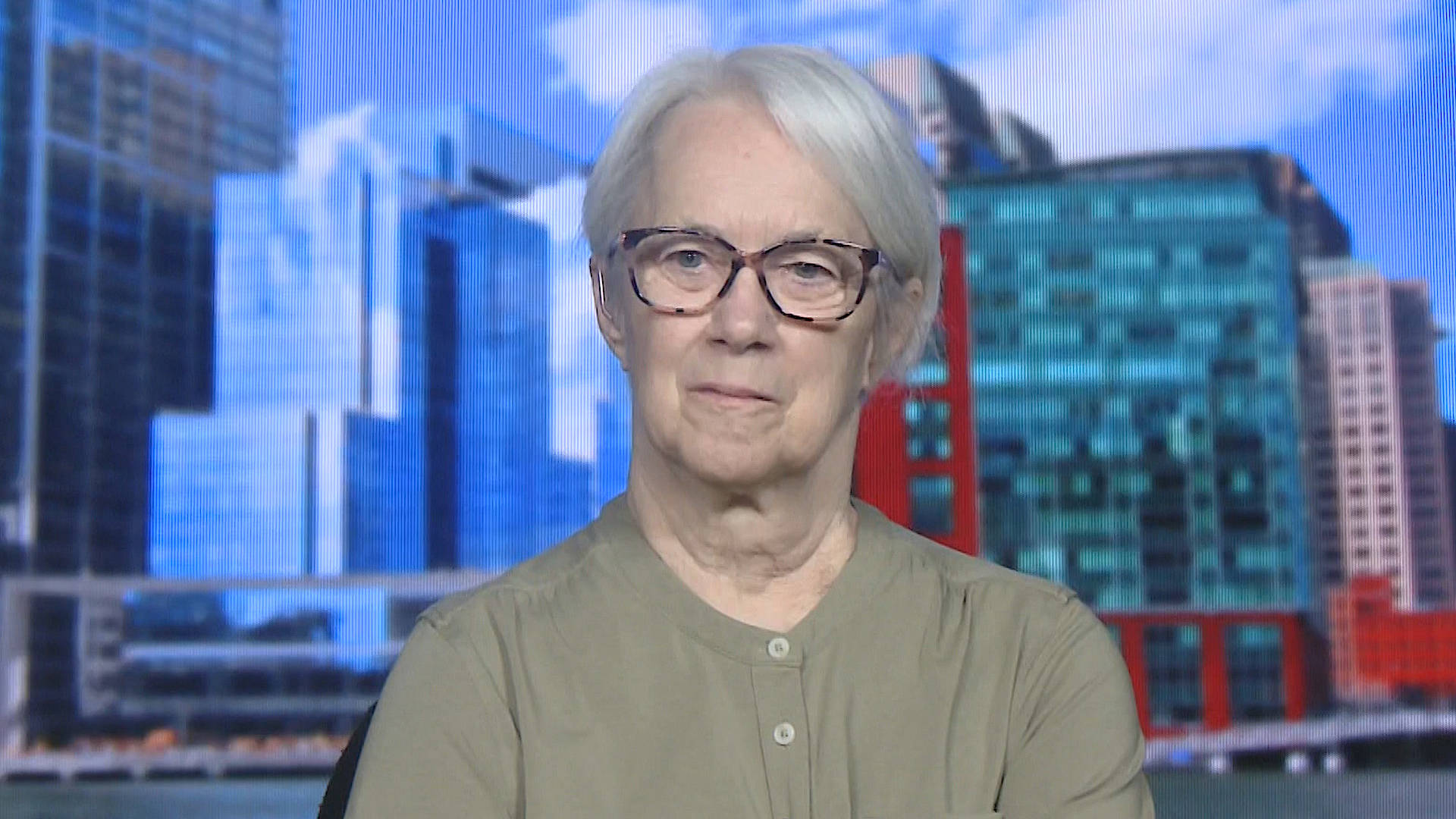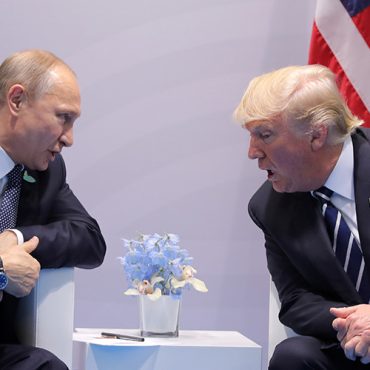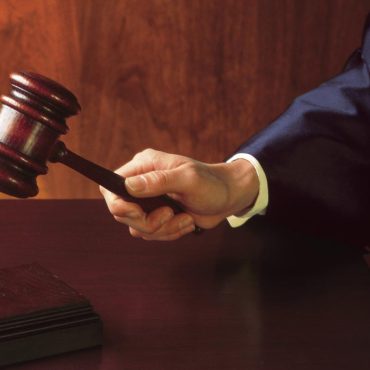This is a rush transcript. Copy may not be in its final form.
AMY GOODMAN: This is Democracy Now!, democracynow.org. I’m Amy Goodman.
Defense Secretary Lloyd Austin has revoked a plea deal for Khalid Sheikh Mohammed and two other men held at Guantánamo accused of plotting the 9/11 attacks. Under the deal, the prisoners had agreed to plead guilty and be sentenced to life in prison. But on Friday, Austin rescinded the deal in a move that will put the death penalty back on the table for the three men.
For more, we’re joined in Boston by Terry Rockefeller, a member of September 11th Families for Peaceful Tomorrows. Her sister Laura died in the World Trade Center attacks. Terry had supported the plea deal. Here in New York, Shayana Kadidal is the managing attorney of the Guantánamo project at the Center for Constitutional Rights.
We welcome you both to Democracy Now! Shayana, let’s begin with you. It was a surprise first to hear this plea deal was worked out. I mean, they’ve been at Guantánamo for decades, these three men. They stay in prison for the rest of their lives, but death penalty was off the table. And then it was another shock to see that the Defense Secretary Lloyd Austin had vetoed the deal. Explain what happened.
SHAYANA KADIDAL: Sure. Well, you know, first of all, the prosecutors wanted this deal badly, right? Because I think they understood, as anyone else who’s observed this process understands, that the death penalty was never going to happen in these cases, for a bunch of reasons, right? There’s a common misconception that the issue is torture evidence. There’s actually a lot of evidence that isn’t contaminated by torture, including, you know, predetention confessions to Al Jazeera that KSM made, cooperating witnesses and so forth. The problem is more, you know, when you get to sentencing.
AMY GOODMAN: And when you say “torture evidence,” you’re saying that the fact that, for example, Khalid Sheikh Mohammed was waterboarded about a hundred times contaminated his so-called confession.
SHAYANA KADIDAL: It contaminated a lot of the confessions, obviously, that took place in detention. The military has — prosecutors have made a great number of attempts to keep some of the confessions that allegedly happened after they were brought to Guantánamo and after the worst of the CIA torture supposedly stopped. And that’s one reason these cases have dragged on for so long.
But, you know, putting to one side the fact that it would take years to get to trial and years after any death sentence to enforce it — and these defendants are in their mid-fifties — you know, there are also problems at the sentencing phase, right? The CIA is never going to want to produce its witnesses — they’ve already shown that in other cases — witnesses to the torture that the defendants could put on to show what happened to them and arguing for clemency and arguing against the death penalty, right? And then they also fear what the military juries might do after they hear the evidence of torture.
AMY GOODMAN: And when you say “military juries,” explain, that these are not brought into regular courts.
SHAYANA KADIDAL: Right, right. If they had been brought to federal court, we’d get a jury of civilians here in New York. In the military commissions, you get a jury of military officers. But we had a client who was horribly tortured, who pled guilty to some offenses linked to al-Qaeda, and the military jury kind of showed that the — in a statement that they issued afterwards, that they really were troubled by what they had seen in terms of his torture. And so, this is a concern for the prosecutors.
AMY GOODMAN: And finally, people might be surprised that the defense secretary gets to decide this.
SHAYANA KADIDAL: Well, he really doesn’t, right? Lloyd Austin is the original convening authority, the person in charge of the military commissions, but he delegated all of his power to General Escallier, who made the decision to sign off on these agreements, right? So, there’s a really significant question here of whether or not what Austin did in removing Escallier from her role in approving these agreements and purporting to withdraw the agreements — there’s a real question about whether it’s legal, right? Under the Manual for Military Commissions, there are very narrow circumstances where he can withdraw an agreement that’s already been signed, right?
And then, beyond that, there are going to be legal challenges based on command influence. You know, in the civilian system, Donald Trump can remove the attorney general if he doesn’t like a prosecution, but, generally, the AG is supposed to operate independently. But that’s based on norms. In the military system, it’s all written into the two major statutes. So there are going to be significant challenges to both whether the withdrawal is legal and effective and whether it involves command influence. And the remedy for command influence is dismissal of the charges. So, you know, yet another chapter in the ongoing train wreck that is the military commissions.
AMY GOODMAN: I want to bring Terry Rockefeller into this conversation. Terry’s sister Laura died on 9/11, on September 11th, 2001, at the World Trade Center. She’s with September 11th Families for Peaceful Tomorrows. Your response to the plea deal originally — it’s something you have called for — and then Lloyd Austin nixing it?
TERRY ROCKEFELLER: Well, you know, I think, Amy, every time we speak, it seems that it’s one more instance of just the terrible, ongoing repercussions of the very bad decisions that were made in the immediate wake of 9/11.
September 11th Families for Peaceful Tomorrows had initially hoped that we would see trials in federal court. We know that the federal courts are very competent in handling terrorism cases and very competent in handling cases where there is a great deal of classified information. That didn’t happen. We had politicians in New York blocking that.
So, we became very invested in figuring out just what was going to go on in the military commissions. And frankly, you know, I’m looking back now. I was present for the arraignment of the then five men who had been accused of supporting the 9/11 attacks. That was in May of 2012. Within five years, the members of our organization grew convinced that we were never going to see a trial. And we were also keenly aware of the number of victim family members who were dying without seeing justice.
We began working very hard for plea agreements. There was one iteration that was initiated. And I always emphasize it’s important to understand, and the — many of the politicians who don’t really understand what is ongoing at Guantánamo don’t appreciate that it was the prosecution that sought plea agreements because they themselves recognized the very difficult case they had on their hands.
When the first attempt fell through, we were frustrated, but we were, frankly, totally surprised by the announcement that three of the men had completed their agreements. And I guess I felt relief. I thought about how, finally, there was going to be not the complete rule of law that we would have wanted to see, but an opportunity for some accountability and, more importantly, some kind of judicial finality.
When that was revoked, within, you know, such a short period of time, I just feel like once again we’re on uncharted waters. And I’m just — I’m so sad for our country that we haven’t been able to grapple with the mistakes that were made in handling this case and come to terms with those mistakes and rescue something about the rule of law in this nation so that we can move forward as a country.
AMY GOODMAN: Terry, Defense Secretary Austin cited the emotions and desires of 9/11 families as justification for revoking the plea deal. If you can respond to that, and what you would say to those who might be using your family’s loss to justify this revocation?
TERRY ROCKEFELLER: I think the range of opinions and feelings among 9/11 family members is so diverse that I wouldn’t want — I don’t want to characterize them.
I want it to be very clear that as a group of people and the only organization that has the capacity to go down to Guantánamo and attend the ongoing pretrial hearings, as a representative of an NGO, so we have an opportunity to speak to both sides, both the prosecution and the defense, and I think that had family members actually gotten all the opportunities that the plea agreement promised us, many, many of them would have been satisfied. The plea agreement included an opportunity for family members to pose questions to the defendants and get those answers within 45 days. Many of the family members who are awaiting trial are really eager to learn about many issues that go far beyond the roles of the five men who were accused, now down to four men because one of them has been ruled incompetent to stand trial. But I think if we, as a diverse community of people who lost family members, had had an opportunity to really take advantage of what the plea agreements offered, we might be a lot further along as a nation toward reaching some kind of understanding.
AMY GOODMAN: Terry Rockefeller, I want to thank you so much for being with us. You lost your sister on 9/11. And this last fact: It cost half a billion dollars to run the Guantánamo prison, something like $13 million for each of the 30 prisoners left. Compare that to something like $78,000, it’s $13 million per prisoner in Guantánamo, $78,000 for people — for prisoners at supermax, held at a federal prison. That does it for our show. Shayana Kadidal of Center for Constitutional Rights, thanks so much for being with us. I’m Amy Goodman. Thanks so much for joining us.











Post comments (0)